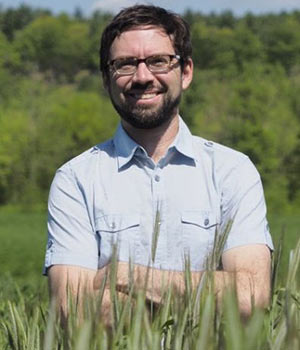If you live in Vancouver (even in a city lot or suburban parcel), chances are you probably live on some of the richest farmland in the state of Washington.
According to AcreValue, a web service that uses data from the USDA’s Natural Resource Conservation Service (NRCS) to evaluate farmland values, Clark County’s soils and climate rank No. 1 in the state for their ability to support agricultural productivity. Clark County has a rich history of agriculture, and we still have a surprising number of farms, despite how increasingly urban it has become. In the 2017 USDA Census of Agriculture, Clark County ranked as the county with the third highest number of farms compared to other counties in Washington. Nonetheless, our farms are not faring so well economically. Clark County agriculture is in a state instability. The effects of heavy and rapid urbanization, land-use pressure, and policy-related challenges all factor in for most, if not all, Clark County agricultural business owners.
In 2017, on a per-acre basis, Clark County farms’ return to the economy from our value of agricultural products sold is relatively low for a county with the sheer production potential that our farmland possesses. This fact is alarmingly anomalous in contrast – a nearby Oregon county of a very similar size, population density, climate, acres classified as farmland soils and production potential rating produced ~3.7 times greater economic returns per acre than Clark County farms. Likewise, several other Western Washington counties with lower NRCS productivity potential ratings and/or urbanization pressure returned between ~5.1 and 6.9 times as much agricultural product value per acre than Clark County farms. There is room for growth.
In a rapidly growing region like this, it’s easy for agricultural businesses to get overshadowed by the excitement of economic booms like what we’re experiencing in the tech sector and real estate. Agriculture has always been a foundational economy, and a high-risk business. The biology and weather that farmers work with each year promises to be relatively unpredictable and indifferent to the goals of the farm business. And because agriculture is a fundamental to fulfilling a basic human need, we’ve understandably worked to make it as affordable and accessible – but this does not always translate to economic viability for agricultural businesses.
Farm businesses are often pushed to be large enough to reach an economy of scale that allows them to approach profitability in a business that is fundamentally trying to keep the value of their products low. Under this economic paradigm and framework though, it becomes incredibly difficult – if not prohibitively so – for farm businesses to grow in size in a region with a rapidly growing population and increasing competing interests.
Agriculture needn’t always be large acreage to produce considerable economic returns though. Washington’s top grossing agricultural county returns only ~2.1 times more per acre in agricultural product value to the economy than Clark County farms, and returns considerably less per acre than the aforementioned counties in Western Washington and Oregon. In 2017, one highly populated county in New York State that capitalizes on New York City markets returned ~14.2 times more per acre than Clark County farms, and returned nearly as much total value in agricultural products to the economy than a major wheat producing county in the Palouse region did – using 1.25 million less acres.
The key point to take away from this is, that with Clark County farms being relatively small-acreage and (likely getting smaller), opportunities that allow our farmers to achieve higher-value-per-acre returns are imperative. The inherent productive potential of the land in Clark County is outstanding, and the potential for high-value, premium markets is, too.
There are many farms, individuals and organizations that have been thinking outside the box when it comes to what an agricultural economy can look like, and how many different forms an agricultural business might take. Along with this has been a rising cultural shift in how food is valued, and the value that farms have to the community beyond their ability to produce food alone. It’s increasingly common that the consumer is interested in where and who their food comes from, and that that food is capable of being a simple pleasure that brings people together and serves as a fundamental component of one’s quality of life. Also, besides the fact that a well-managed farm can sustainably produce economic returns for the community, farms are also increasingly valued for enhancing quality of life via stewardship of open space, and as working landscapes that maintain connections with land-based livelihoods and the greater natural landscape.
Over the past two years, WSU Clark County Extension has been increasingly investing in research and programs focused on ways farm businesses may diversify for increased stability and resiliency, incorporate value-added approaches for farms to capture more of the food value chain and in high-value crop options for Clark County farmers. Beginning in 2018 we also began investing in research and demonstration areas at the 78th Street Heritage Farm to trial and showcase crops that may have that potential, along with events that link those crops with potential markets and greater value-added opportunities. This is a reinvention point for agriculture in Clark County, and a singular opportunity for an agricultural renaissance, but it will likely take a concerted effort of many to realize.
Justin O’Dea is a regional agriculture specialist with the WSU Clark, Cowlitz and Skamania County Extension. He can be reached at justin.odea@wsu.edu.






